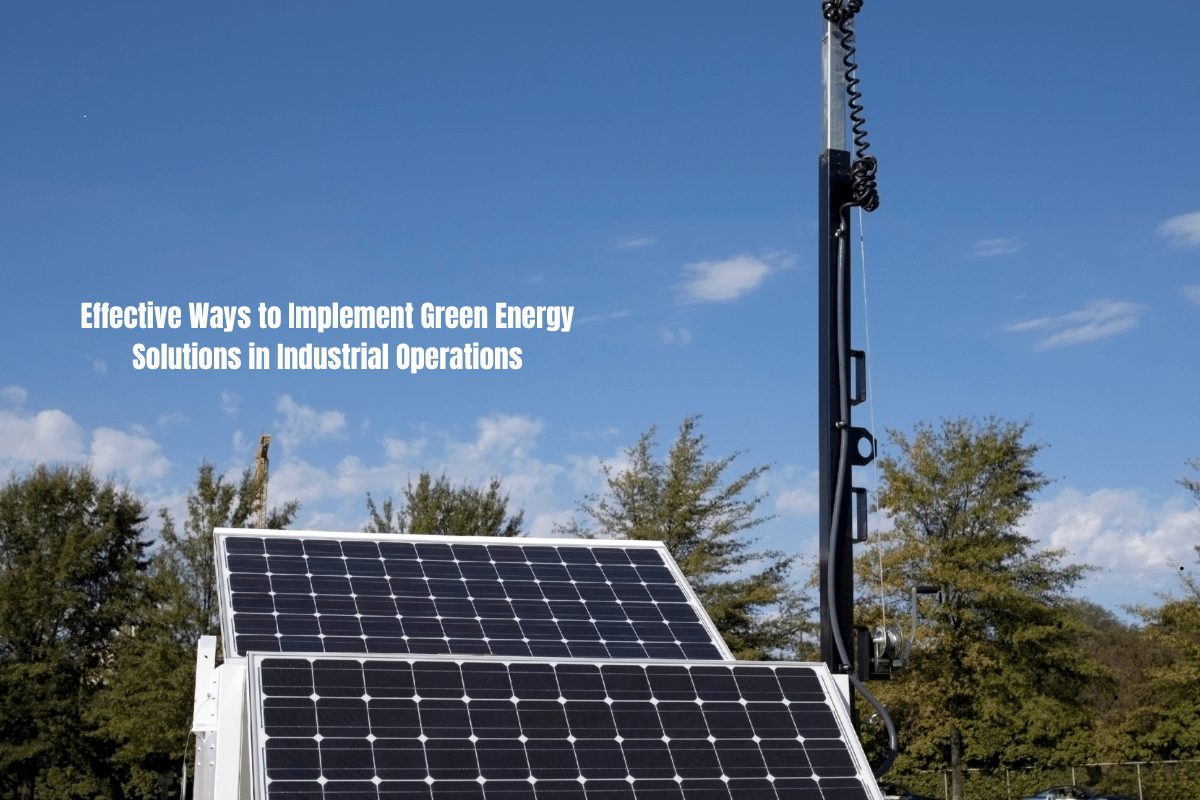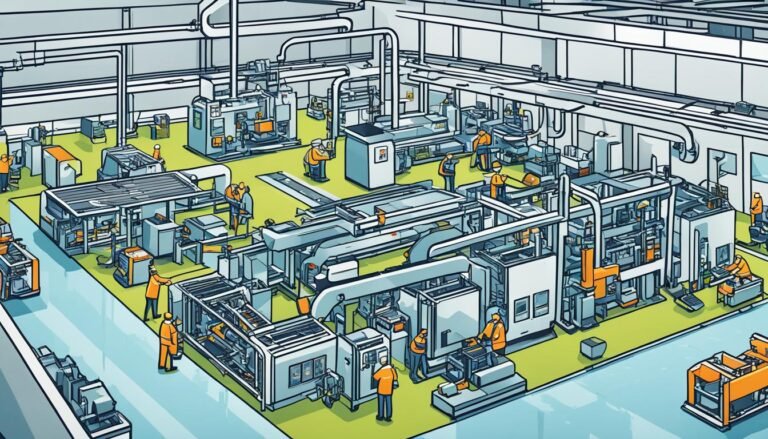Effective Ways to Implement Green Energy Solutions in Industrial Operations
The movement toward green energy solutions has gained significant traction in recent years as industries pivot to more environmentally friendly practices. Globally, companies are recognizing the necessity of reducing their carbon footprints and enhancing their sustainability initiatives. This momentum is not simply a passing trend; it’s a critical transition reflecting a profound respect for the planet’s resources and a commitment to future generations.
As industries evolve, we’ll examine effective strategies for implementing green energy solutions in industrial operations, focusing on practical steps and innovative technologies that promise substantial improvements.
Understanding Green Energy Solutions
Green energy refers to energy obtained from renewable sources that have a minimal impact on the environment. These sources include solar, wind, hydro, geothermal, and biomass. Utilizing these resources not only promotes sustainability but also offers a viable alternative to fossil fuels, contributing to reduced greenhouse gas emissions.
In industrial contexts, adopting green energy solutions can lead to enhanced operational efficiency, cost savings, and improved public perception among eco-conscious consumers.
The industrial sector has a significant impact on energy consumption worldwide. According to the International Energy Agency (IEA), industrial energy use accounts for approximately 30% of global energy consumption. This makes the transition to green energy not only beneficial for the environment but also economically advantageous.
Embracing renewable energy solutions can be a strategic move that enhances resilience in a volatile market and responds effectively to regulatory pressures.
Investing in Solar Power
Solar energy has become one of the most popular forms of green energy adoption across various industries. Technologies such as photovoltaic panels harness sunlight to generate electricity, which can be utilized on-site to power operations or sold back into the grid, offsetting energy costs.
Industries that have adopted solar solutions report considerable savings on utility expenses, along with a reduction in their dependency on non-renewable energy sources.
Companies can consider solar installations for rooftops or ground-mounted systems depending on their operational footprint. Many entities also explore community solar programs that allow multiple businesses to share the benefits of a larger solar array without individual installation costs.
By maximizing the potential of solar energy, businesses not only decrease their environmental impact but also contribute to the increasing demand for renewable technology in the marketplace.
Harnessing Wind Energy
Wind energy is another effective green energy solution with growing popularity in industrial applications. By installing wind turbines, companies can generate significant amounts of power, especially in areas with consistent wind patterns.
Industries that consume large amounts of energy, such as manufacturing and mining, can benefit greatly from tapping into this abundant natural resource. Larger facilities can consider investing in their own wind farms or partnering with wind energy operators for shared use agreements.
Evaluating local regulations and incentives is essential for businesses contemplating this option, as many regions offer tax breaks or grants to encourage wind energy projects. Research indicates that wind energy could meet up to 18% of global electricity demand by 2030, reinforcing its importance as a key player in the transition toward sustainable energy solutions.
Energy Efficiency Through Hybrid Generators
Hybrid generators are another innovative approach for industries looking to implement green energy solutions. These systems combine traditional fuel-based generators with renewable energy sources, such as solar or wind, creating a more robust and versatile energy supply.
By utilizing sustainable power with hybrid generators, companies gain the advantages of lower fuel costs, reduced emissions, and improved energy security. Investing in hybrid systems can be particularly beneficial for facilities located in remote areas where access to reliable grid power is limited.
The energy generated can effectively complement existing power sources, thus enhancing operational reliability while minimizing environmental impacts. As the technology advances, hybrid generators have become increasingly efficient, allowing industries to meet their energy needs more sustainably.
Implementing Energy Storage Solutions
Integrating energy storage systems is crucial for maximizing the effectiveness of any green energy initiative. Batteries or other advanced storage technologies can help store excess energy generated for later use, ensuring that businesses can maintain a steady energy supply, even during peak demand times or outages.
This capability enhances resilience and operational continuity and allows companies to optimize their energy use patterns. Energy storage solutions can also facilitate a smoother integration of renewable energy sources. A solar-based facility may generate surplus energy during peak sun hours, which can be stored and utilized later, thus minimizing energy waste.
As such, companies should carefully evaluate various storage technologies to determine which aligns best with their operational needs and budget.
Regulatory Incentives and Support
Governments worldwide are increasingly supporting the adoption of green energy solutions through various policies and incentives. These can include grants, tax credits, and rebates specifically designed to encourage businesses to invest in renewable energy technologies.
Understanding available programs can greatly benefit industries looking to transition toward greener practices, potentially reducing capital investment costs. Engaging with governmental and regulatory bodies while developing a sustainability strategy can ensure compliance with applicable laws and help navigate funding opportunities.
Many regions have specific targets for reducing emissions which can create favorable conditions for businesses willing to participate in green energy initiatives.
An increasing number of industries are recognizing the importance of green energy solutions as they strive for greater sustainability. Strategies including investments in solar and wind energy, hybrid generators, and energy storage systems can lead to significant environmental and financial benefits. Engaging stakeholders and monitoring progress ensures that companies can adapt and thrive in an evolving energy landscape, paving the way for a sustainable and energy-efficient future.







